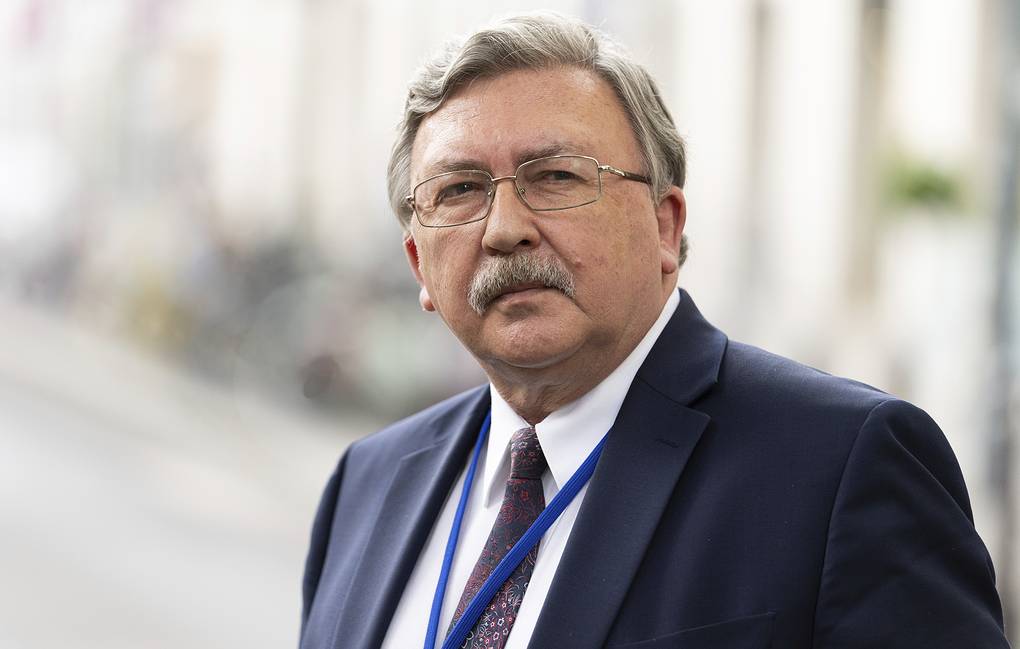“The attitude is positive, in a sense that it is necessary to make every effort to successfully finish the talks, as the alternatives vary between bad and really bad,” Russia’s permanent representative to the international organizations in Vienna, Mikhail Ulyanov, told Sputnik on Sunday.
“Opportunities to come to an agreement still exist,” he added.
On Saturday, Ulyanov’s Iranian counterpart, Ali Baqeri, left Tehran for Vienna to take part in the first round of the Vienna talks under President Ebrahim Raeisi and the seventh since they were launched in early April.
The Raeisi administration insists that its primary target in the talks is to have all of the United States’ unlawful sanctions removed in a verifiable manner.
The US slapped several rounds of sanctions on Tehran following its withdrawal from the nuclear agreement, officially called the Joint Comprehensive Plan of Action (JCPOA), despite the International Atomic Energy Agency (IAEA)’s 15 consecutive reports saying that Iran had continued to fully observe all of its obligations under the JCPOA.
The administration of President Joe Biden, which had promised to return to the JCPOA and call off the so-called maximum pressure on Tehran, now calls for a mutual return to the deal.
Tehran says it never left the deal in the first place to have to return to it. It also stresses the need for the US to remove all of its sanctions in practice and provide a guarantee that it will never leave the deal again in order to gain a seat at the JCPOA table.
Days earlier, Ulyanov told the IAEA Board of Governors that the root causes of Iran’s reduction of its nuclear obligations under the JCPOA need to be mentioned whenever discussing the issue.
“No one talks about the root causes,” Ulyanov stated, adding, “It must be remembered that the termination of the temporary application of the Additional Protocol was the result of the [US] policy of ‘maximum pressure’ and the assassination of an Iranian scientist.”
He was making a reference to the assassination of Mohsen Fakhrizadeh, Iran’s top nuclear scientist, on November 27, 2021, in a terrorist attack widely attributed to the Israeli regime.
On May 8, 2019, exactly a year after the US withdrawal from the JCPOA, Iran announced that it was no longer bound by certain limitations on its nuclear program, triggering the “dispute resolution mechanism” under paragraph 36 of the deal, which provided Iran with the option of taking reciprocal measures in the face of the significant non-performance of the other parties, in particular the US.
Prior to that, during both the Barack Obama and Donald Trump administrations, Iran had triggered the mechanism a number of times but refrained from taking reciprocal measures in order to keep the path of diplomacy open.
Since May 2019, Iran has been taking incremental “remedial measures” including enriching uranium to 60% purity and stopping its voluntary implementation of the Additional Protocol, after which Tehran and the IAEA have been at loggerheads.
Despite the disagreements, however, the IAEA has continued to confirm that Iran has not made a move to build nuclear weapons.
Iran has repeatedly said that it is not after developing nuclear weapons.
